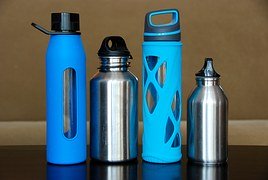The hot and humid Summer is long gone, but the importance of staying hydrated remains in this cold Winter season. This is especially true for older adults when it comes to staying hydrated and exercising. No matter the time of year, older adults run a greater risk of becoming dehydrated than younger adults. Dehydration is a result of one’s body losing more water than it takes in. The body is unable to carry out its normal functions properly without the correct amount of fluids. This presents a great health risk for older adults. A study shows that 30% of individuals over the age of 65 are dehydrated when hospitalized.
The primary reasons older adults are more susceptible to dehydration is because their bodies’s fluid reserves become smaller. This makes their ability to conserve water more difficult and their thirst sense decreases. An individual’s fat mass contains up to 73% water, but as people age, their fat mass decreases, making it more difficult to store water. Furthermore, some older adults need to take medicine, most likely for a chronic illness. In this case, some of the medicines may be further dehydrating older adults. Lastly, older adults have changing taste buds, therefore they may grow to dislike the taste of water and thus not drink it as much.
Not only is it important to stay hydrated for the sole purpose of health, but hydration also plays a vital role in exercising. According to a study by the American Psychological Society “older adults should adopt adequate drinking behaviors to reduce cognitive fatigue and potentially enhance the cognitive benefits of regular exercise participation.” Reap the rewards of your exercise by staying hydrated!
Be hydrated & healthy!
***Disclaimer: The information in this post is for reference only and is not intended to be a substitute for medical expertise or advice. If you have any concerns about your own or another’s health, then please contact your doctor.
Sources:
https://www.sciencedaily.com/releases/2018/04/180422123757.htm
https://www.mayoclinic.org/diseases-conditions/dehydration/symptoms-causes/syc-20354086 https://www.ncbi.nlm.nih.gov/pmc/articles/PMC4671176/
https://www.ncbi.nlm.nih.gov/pmc/articles/PMC4671176/


